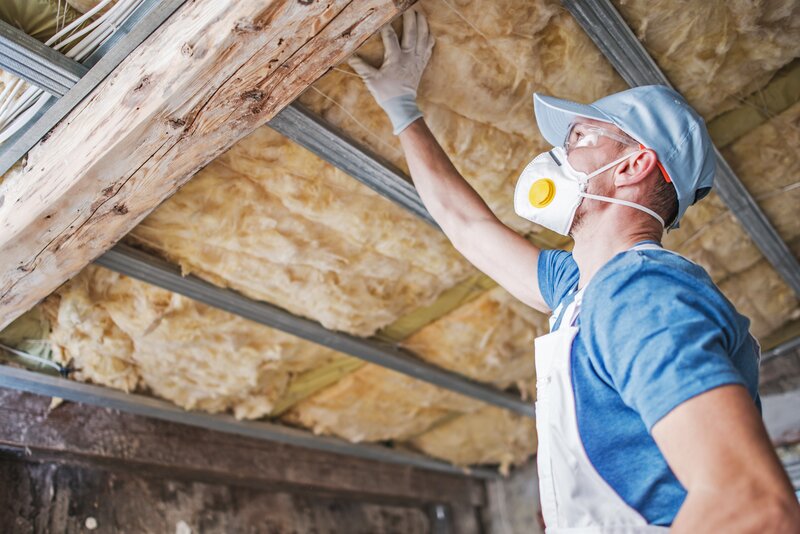
A well-insulated roof is a crucial aspect of any residential or commercial property, offering numerous benefits such as increased energy efficiency, improved indoor comfort, and reduced noise pollution. With growing concerns about energy consumption and a demand for more sustainable buildings, property owners, contractors, and architects are continuously seeking ways to enhance insulation systems for better performance and long-term savings. In this comprehensive guide, we will explore the fundamentals of roofing insulation, its various types, and practical recommendations to help you select the appropriate insulation solution to maximize your property’s energy efficiency, comfort, and overall performance.
Adequate roofing insulation serves as a barrier that regulates temperature, retaining heat during cold months and reflecting it during warmer periods. This thermal regulation contributes to a more consistent indoor climate, reducing the strain on HVAC systems and, in turn, lowering energy costs. Furthermore, quality insulation aids in noise reduction, creating a more comfortable and peaceful environment for occupants.
This guide will delve into the different types of insulation materials available, such as fiberglass, cellulose, spray foam, and rigid foam board, each offering unique properties, benefits, and potential drawbacks. We will also discuss critical factors to consider when selecting the ideal insulation solution for your specific needs, such as climate, insulation R-values, and cost-efficiency.
Armed with a thorough understanding of the role insulation plays in your property’s overall performance and comfort, you can make informed decisions when designing, renovating, or upgrading your roofing system. Stay with us as we navigate the ins and outs of roofing insulation, providing practical insights and tips to optimize your property’s energy efficiency and overall satisfaction.
Understanding Roofing Insulation Types
There is a diverse array of roofing insulation materials to choose from, each with its unique characteristics, benefits, and drawbacks. Selecting the appropriate insulation for your property depends on factors such as climate, building codes, and personal preferences. Some common insulation materials include:
1. Fiberglass Insulation: Fiberglass is one of the most popular insulation materials on the market, known for its affordability and versatility. Available in rolls or batts, it is relatively easy to install and offers strong thermal resistance. However, fiberglass can irritate the skin and respiratory system during installation, so proper safety gear is necessary.
2. Cellulose Insulation: Made from recycled paper or wood products, cellulose insulation is an environmentally-friendly option. It is typically installed by blowing a layer of loose-fill material into attic spaces or walls, providing good thermal resistance and fire protection. However, cellulose can be susceptive to moisture and mold issues if not adequately installed or maintained.
3. Spray Foam Insulation: Spray foam insulation is a popular choice for its ability to create an air-tight seal against drafts and moisture. It comes in two forms – open-cell and closed-cell – with closed-cell offering greater insulating properties and resistance to moisture. However, spray foam insulation can be more expensive than other options and requires professional installation.
4. Rigid Foam Board Insulation: Rigid foam boards are composed of solid panels that provide excellent insulating properties and compressive strength. They can be used in both roof and wall applications, and are typically installed beneath roofing systems for commercial buildings. Rigid foam board is lightweight and easy to work with, but its cost may be higher than other insulation materials, such as fiberglass or cellulose.
Selecting the Ideal Insulation for Your Property
When determining the best insulation solution for your residential or commercial property, consider the following key factors:
1. Climate: The local climate plays a critical role in influencing the appropriate insulation materials and R-values (the measure of insulation’s thermal resistance) required for optimal performance. In colder regions, higher R-values are recommended to retain heat effectively, while in warmer climates, insulation with good reflective properties might be more suitable.
2. Cost-Efficiency: Evaluate the long-term cost benefits of each insulation material, considering not only the initial expense but also potential energy savings over time. While some materials may be more expensive upfront, they could provide greater long-term value through superior insulating properties and reduced energy costs.
3. Building Codes and Regulations: Consult your local building codes to ensure that the insulation materials and methods you select comply with regulations and standards for energy efficiency and safety.
4. Environmentally-Friendly Options: If sustainability and environmental impact are essential factors, consider insulation materials that contain recycled content or have low embodied energy, such as cellulose or wood fiber insulation.
Insulation Installation Tips and Best Practices
To maximize the benefits of your roofing insulation, adhere to the following installation tips and best practices:
1. Proper Seal: Ensure all gaps, cracks, and seams are adequately sealed using caulk or expanding foam, creating an effective air and moisture barrier.
2. Ventilation: Ensure proper attic ventilation is in place to prevent condensation and moisture issues that could compromise the insulation’s effectiveness or lead to mold and rot problems.
3. Professional Installation: For complex insulation jobs, such as spray foam insulation, always engage a professional contractor to ensure correct, safe, and efficient installation.
4. Periodic Inspection: Schedule routine roof and insulation inspections to detect and address any potential issues, ensuring optimal performance and prolonging the life of your roofing system.
Conclusion
Investing in high-quality and well-installed roofing insulation is essential for maximizing your residential or commercial property’s energy efficiency, comfort, and long-term performance. By understanding the various insulation types available, their respective advantages and limitations, and considering key factors such as climate, cost-efficiency, and building codes, you can make an informed decision tailored to your specific needs.
Always collaborate with trusted roofing specialists like Roofing Masters Network to assess and implement the ideal insulation solution for your project. By prioritizing the importance of roofing insulation, you’ll not only enhance the comfort and satisfaction of your property’s occupants but also contribute to a more sustainable and energy-efficient future.

